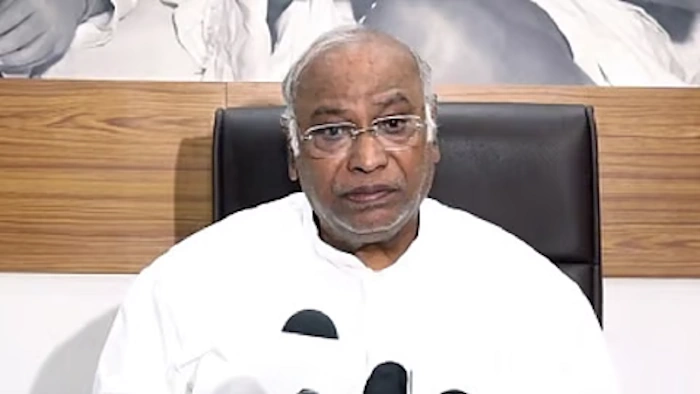Karnataka Turmoil Puts Kharge’s Leadership to the Test
As the Congress party faces mounting tension in Karnataka over a possible change in leadership, party president Mallikarjun Kharge finds himself in an increasingly uncomfortable spotlight. Despite hailing from the state, Kharge has distanced himself from direct involvement in the unfolding crisis, saying only that “the high command will decide” the matter—an admission that has puzzled many within his own party.
While the BJP has been quick to mock Congress for being “remote-controlled” by the Gandhi family, some within the Opposition have gone further, describing the party leadership as a “ghost”—unseen, yet omnipresent. For Kharge, this episode has opened a broader question: is he truly in command, or merely a symbolic figurehead?
Silence or Strategy?
Many in the Congress were taken aback by Kharge’s reluctance to assert authority. A senior Dalit leader pointed out that, historically, the Congress president has always been seen as the party’s ultimate authority. “We had never treated any person other than the Congress president as more powerful. That’s why Kharge’s remarks come as a surprise,” he said.
The perception that Kharge is not leading from the front—especially in his home state—is being seen as a missed opportunity to consolidate his stature. While General Secretary Randeep Singh Surjewala held meetings with Karnataka MLAs in Bengaluru, Kharge chose to stay on the sidelines, adding fuel to the perception of a divided command structure.
Shadow of the Gandhis
Within Congress circles, there is little belief that Kharge’s authority has been formally diminished. But the reality, many admit, is that Rahul Gandhi continues to act as the de facto decision-maker, especially on key appointments and policy directions. His hands-on style has also left Priyanka Gandhi with a title—AICC General Secretary—but no active assignment.
Some insiders recall the 2022 party presidential race, where Shashi Tharoor’s bid for the top job was reportedly frowned upon by the Gandhis, who preferred Kharge’s unopposed election. Since then, however, Kharge’s engagement appears limited, perhaps due to age or weariness with the logistical demands of national politics.
Structural Shifts and Organisational Reform
In a broader context, Congress has declared 2025 the “Year of the Organisation,” focusing on rebuilding the party from the district level. Yet the top-down approach—where teams are dispatched from outside the states to establish local structures—has drawn criticism for being disconnected from grassroots realities.
The emphasis on centralised control continues to breed uncertainty. This has echoes of past leadership tensions. In 1996, PV Narasimha Rao resigned under pressure following legal trouble, only to find himself isolated by his party colleagues—a painful lesson in how quickly power can evaporate in the Congress.

